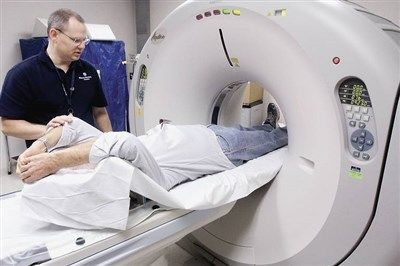
Fujifilm, Canon Are Front-Runners in Bidding for Toshiba Medical Business
Fujifilm Holdings Corp. and Canon Inc. have the best shot at acquiring Toshiba Corp.’s medical-device business with the race nearing the finish line on a possible $6 billion deal, people familiar with the matter said.
Thu Mar 03 2016
Fujifilm Holdings Corp. and Canon Inc. have the best shot at acquiring Toshiba Corp.’s medical-device business with the race nearing the finish line on a possible $6 billion deal, people familiar with the matter said. 
The second round of bidding closes Friday and Toshiba will likely select one bidder as early as next week to enter exclusive talks, one of the people said. Some people familiar with the talks said Fujifilm was eager to buy a 100% stake and had an edge, although they cautioned it was too early to project a winner.
They said Toshiba anticipated that it could bring in about ¥700 billion ($6.1 billion) through the sale, which aims to shore up the electronics maker’s finances after an accounting scandal last year. It wasn’t clear whether the deal value might include the buyer assuming some of Toshiba’s debt.
The strong interest at a time of turmoil in financial markets illustrates the hope Japanese companies are placing in the medical business as a rare area of growth in an aging society. Fujifilm and Canon, once known as leaders in the Japanese camera industry, now have significant medical-imaging businesses.
A third bidding group that consists of Konica Minolta Inc. and U.K. private-equity fund Permira will likely also place a bid in the second round, one person familiar with the matter said. Representatives of the three bidders declined to comment.
Toshiba’s medical-equipment business is one of the company’s prized assets. The unit makes and supplies equipment such as X-ray systems, computed tomography—or CT scanners—and magnetic resonance imaging systems. Toshiba had revenue of ¥412.5 billion in health-care systems and services for the year ended March 2015, and the company says most of that came from medical equipment.
Toshiba’s market capitalization as of Thursday’s market close was ¥840 billion, suggesting that the medical unit may account for much of the company’s value to shareholders.
Nearly a dozen companies and investment firms expressed interest in Toshiba Medical Systems late last year when Toshiba said it would sell a controlling stake in the unit.
Though both Canon and Fujifilm are making attractive offers, Fujifilm’s has drawn favor among some Toshiba executives because of the potential for greater business synergy, two people familiar with Toshiba’s thinking said. “The offer price isn’t everything,” one said, adding that the Toshiba and Fujifilm medical-equipment businesses shared more suppliers in common.
Toshiba needs a speedy rescue due to rapid deterioration of its core units. The company last month projected a loss of ¥710 billion for its fiscal year ending in March.
Toshiba is asking major creditors such as the core banking units of Mizuho Financial Group Inc. and Sumitomo Mitsui Financial Group Inc. for additional loans of around ¥200 billion, people familiar with the matter said. Proceeds of the medical-unit sale could be used to replay those loans, one of the people said.
Bankers expect more deals to come as struggling companies like Toshiba look to unload assets. The government has been encouraging more combinations such as the one in 2012 that created Japan Display Inc., a company that focuses on making displays for smartphones. It was created from units of three electronics giants. The de facto dissolution of Toshiba could spark opportunities for further consolidation.
At one point, a government-backed investment fund known as Innovation Network Corp. of Japan envisioned combining Toshiba and Sharp Corp. businesses that make “white goods” such as refrigerators and washing machines, officials have said. However, that idea fell apart last month after Sharp’s board approved a plan that would put the company under the control of Taiwan’s Foxconn, which has said it wants to keep Sharp intact.
Toshiba President Masashi Muromachi said last month that selling his company’s loss-making white-goods businesses to a foreign player may be an option in light of the Sharp developments.
This article was originally published on The Wall Street Journal.
